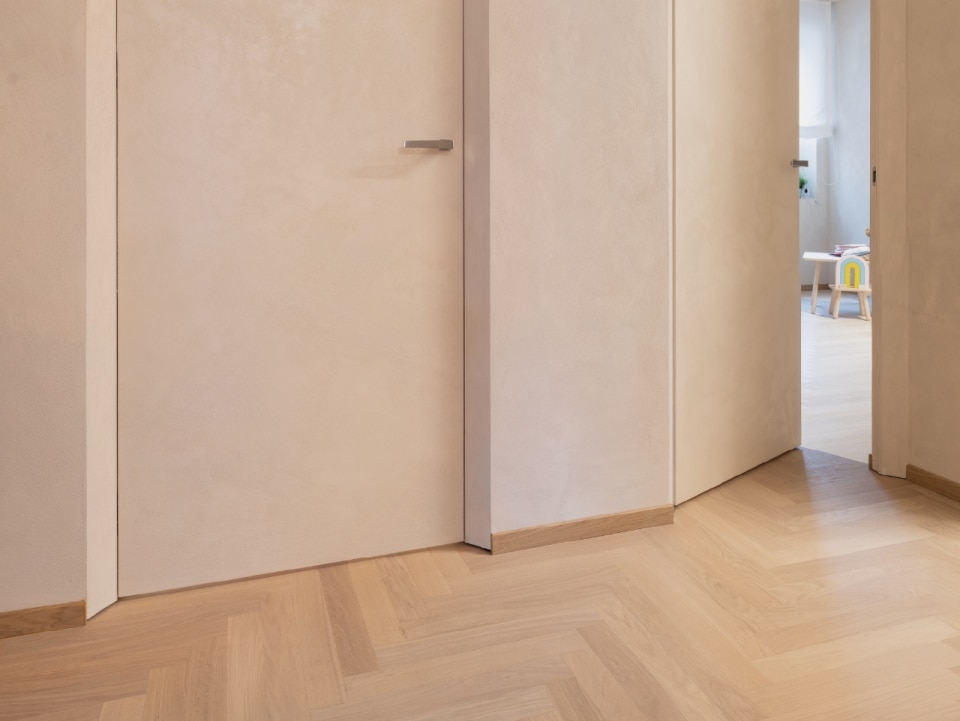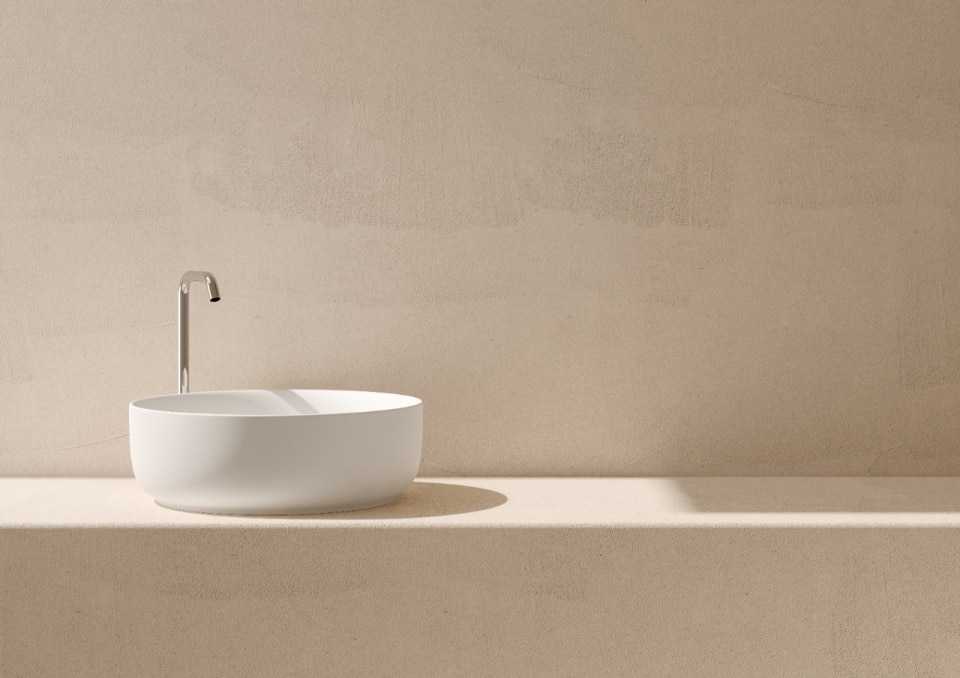
By January 2012, the architectural project was complete and the regeneration process triggered within the perimeter of the old farm buildings started — imaginarily and concretely — to affect the surrounding city. This project was based on a reflection on the concept of "living needs" linked to minimal requirements. It explores the relationship between people and space, and the ability to favour or negate a number of behavioural approaches in both private and public dimensions. “A person ought to realise that living in a space is a sacred action”, underlines client Davide Favero. “Living in a space with minimal heights is not the same as living in one with double or triple heights. The same applies to the furnishings, colours and all the other details.”
“The absence of internal doors except on the bathrooms clearly conveys the concept of a completely open place without protected areas to the children and those passing through the house”, continues Favero, “whereas privacy is guaranteed by the development and size of the property.”




The project contaminates the road, encouraging sociability and sharing
In the living area, a bench clad with green fabric virtually passes through the window to continue in a carpet of artificial grass outside. “The artificial lawn indulges the children’s need to play in a comfortable place and, at the same time, circumscribes the yellow amphitheatre that marks the main entrance to the house.” This space lends itself to spontaneous interaction between residents and neighbours while also acting as a link between the guest accommodation and a building recently purchased by the owners with a view to opening a B&B.
The transparency of the building identifies a direct axis between house and road. The living room is an entrance which, in turn, becomes a square while, to the rear, musical instruments and books behind glass evoke an ultra domestic dimension. What may not seem a revolutionary form, although it does differ from standard Italian residential models, assumes importance here when its political motivations are grasped.

There is a political determination to upset the traditional canons of living an interior because deemed responsible for forming “house people” first and citizens second. The idea of shaping and being shaped by their living unit prompted the Favero family to leave the vibrant city of Turin for an industrial village close to the airport.
The project contaminates the road, encouraging sociability and sharing, fuelling that not necessarily distant utopia of creating an enlightened village ready to welcome others who decide to leave the city behind. Fabrizia Vecchione (@fbrz_vecchione)

Architects: Studio Marc (Subhash Mukerjee, Michele Bonino)
Team: Lucia Baima, Mi-Jung Kim, Tommaso Rocca
Engineering: FRED
Location: Mathi, Turin
Area: 350 square metres
Program: residence and professional office
Photography: Beppe Giardino


With ECLISSE 40 Collection, the threshold becomes architecture
The frame is no longer an invisible detail but a design sign: the ECLISSE company offers a 40-degree inclined frame that captures light, enhances the space and redefines its boundaries.











